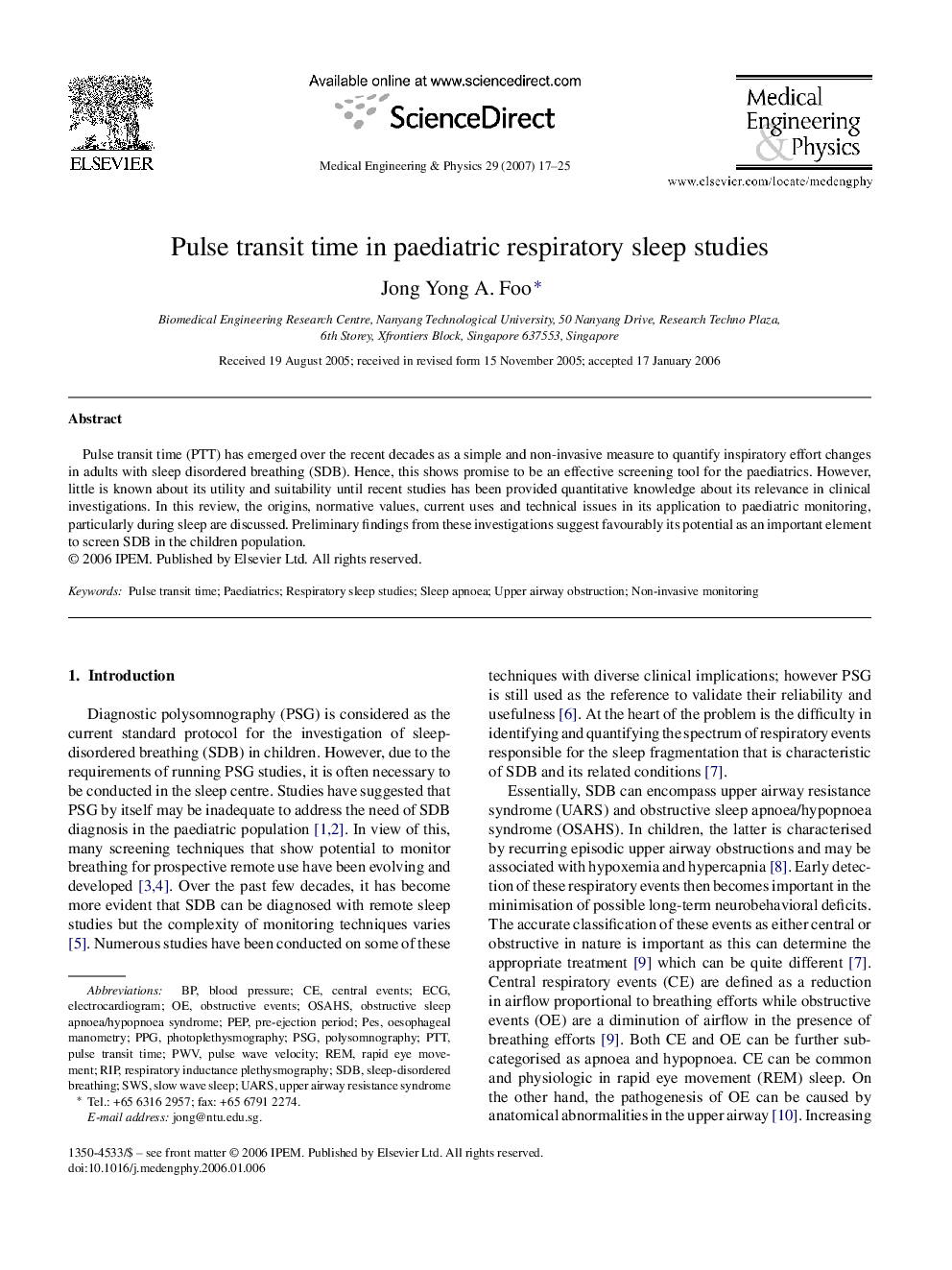| Article ID | Journal | Published Year | Pages | File Type |
|---|---|---|---|---|
| 877044 | Medical Engineering & Physics | 2007 | 9 Pages |
Abstract
Pulse transit time (PTT) has emerged over the recent decades as a simple and non-invasive measure to quantify inspiratory effort changes in adults with sleep disordered breathing (SDB). Hence, this shows promise to be an effective screening tool for the paediatrics. However, little is known about its utility and suitability until recent studies has been provided quantitative knowledge about its relevance in clinical investigations. In this review, the origins, normative values, current uses and technical issues in its application to paediatric monitoring, particularly during sleep are discussed. Preliminary findings from these investigations suggest favourably its potential as an important element to screen SDB in the children population.
Related Topics
Physical Sciences and Engineering
Engineering
Biomedical Engineering
Authors
Jong Yong A. Foo,
